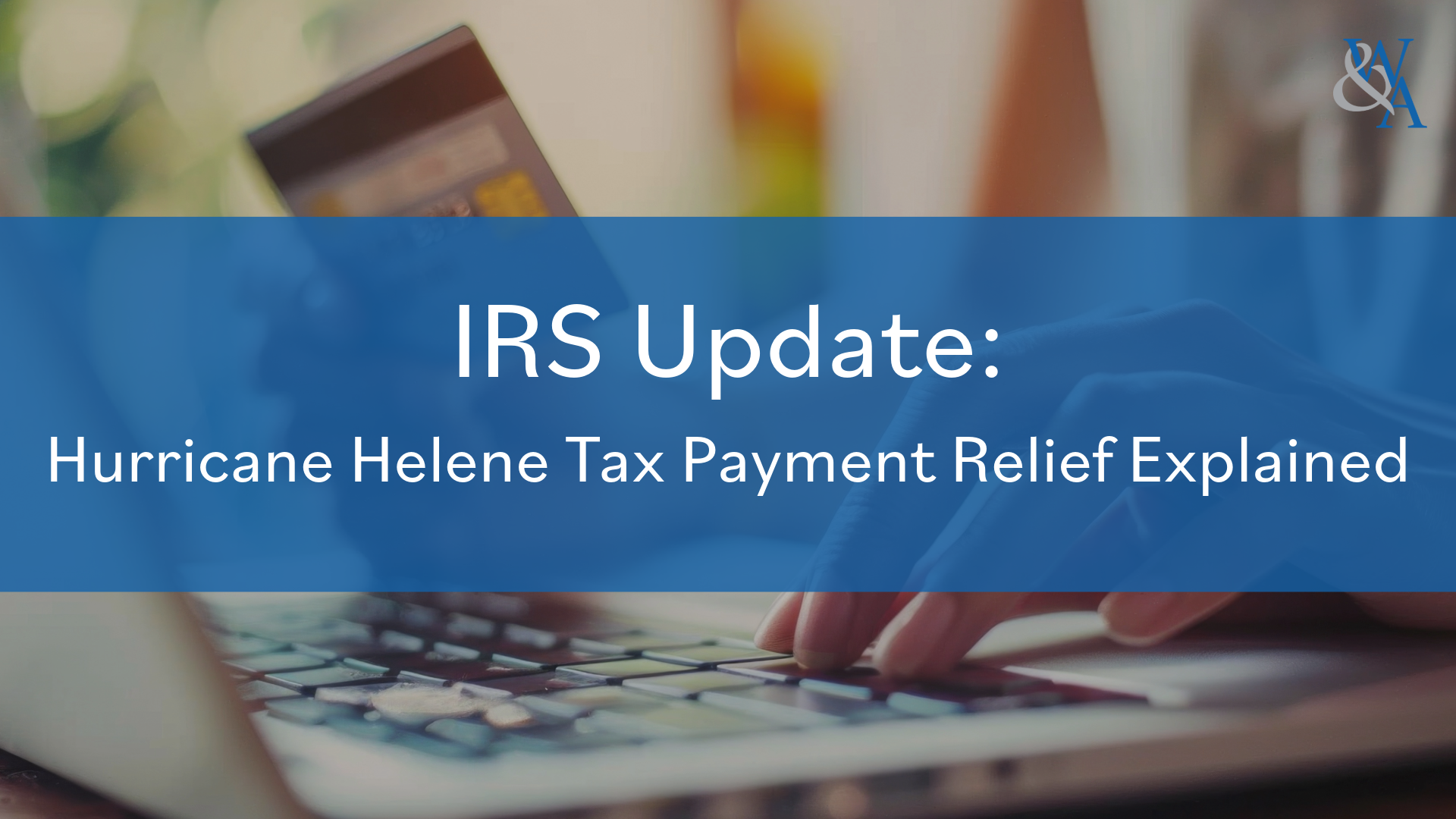
IRS Update: Hurricane Helene Tax Payment Relief Explained
In the aftermath of Hurricane Helene, the IRS has announced essential relief for individuals and businesses in several southeastern U.S. states, including parts of Florida, Georgia, Alabama, Tennessee, South Carolina, North Carolina, and Virginia. One of the critical components of this relief is the extension of upcoming tax payment deadlines, allowing affected taxpayers additional time to manage their obligations as they recover from the storm.
This blog outlines the essential details of these relief efforts and how they can benefit individuals and businesses impacted by the hurricane.
Key Tax Payment Extensions for Businesses and Individuals
The IRS has extended the payment deadlines for taxpayers in the impacted areas. These extensions apply to two significant estimated tax payments for individuals and businesses:
- September 2024 Estimated Tax Payment: The deadline for the third quarter estimated tax payment, originally due on September 16, 2024, has now been extended to May 1, 2025.
- January 2025 Estimated Tax Payment: The fourth quarter estimated tax payment, due on January 15, 2025, has also been extended to May 1, 2025.
These extensions are particularly important for small businesses, freelancers, and individuals who make quarterly payments. The IRS’s move allows these taxpayers additional time to recover financially before meeting their payment obligations.
While the IRS has also extended filing deadlines for 2023 tax returns (due in October 2024) and 2024 returns (due in March and April 2025), the primary emphasis is on the payment relief, ensuring businesses and individuals have sufficient time to manage their finances without penalty.
Affected States and Qualifying Criteria
This IRS relief applies to taxpayers located in federally declared disaster areas in Alabama, Georgia, North Carolina, South Carolina, Tennessee, Virginia, and parts of Florida. Taxpayers within these states are automatically eligible for the extended payment deadlines, and no specific application is required.
If you’ve received an IRS penalty notice related to these tax deadlines, the IRS encourages you to contact them directly to have these penalties abated. It’s important to note that this relief is not limited to just residents of these states—businesses with records in the affected areas may also qualify.
How the Relief Impacts Business Owners
For businesses, especially those operating on a tight cash flow, the extended deadlines for estimated tax payments can provide much-needed flexibility. This is particularly relevant for small businesses in the affected regions that are now faced with additional operational challenges as they rebuild after the hurricane.
Additionally, businesses engaged in disaster recovery efforts may also qualify for these extensions, making it easier to prioritize rebuilding and recovery without immediate tax payment pressures.
While the payment extensions are a critical part of the IRS relief, businesses and individuals still need to remain mindful of their long-term tax obligations and take advantage of the extra time to organize their financial records and manage any claims for disaster-related tax deductions.
Looking Ahead: How to Stay Compliant
With the extended tax payment deadlines, it’s crucial for taxpayers to stay on top of their obligations and plan accordingly. Here’s what you should focus on:
- Estimated Tax Payments: Keep track of the new payment deadlines for September 2024 and January 2025. Planning ahead will ensure that you don’t face any surprises when the extended due date arrives.
- Organize Your Financial Records: Take this time to organize your tax documents, especially if your business or personal property was affected by the storm.
- Consult a Tax Professional: While the IRS has provided automatic relief, working with a trusted CPA or tax professional can help you navigate the specific details of your situation.
If you need assistance determining whether your tax payments qualify for relief, or if you need help with disaster-related claims, we encourage you to reach out to Watson & Associates for guidance.
Watson & Associates Can Help
At Watson & Associates, we understand the complexities that come with tax planning in the aftermath of a disaster like Hurricane Helene. We are here to assist you with staying compliant, filing necessary paperwork, and navigating any available tax relief programs. Whether you need support managing estimated tax payments or filing disaster claims, our team of experts is ready to help you every step of the way.
Contact us today to make the most of the IRS’s Hurricane Helene relief and keep your tax obligations in check.